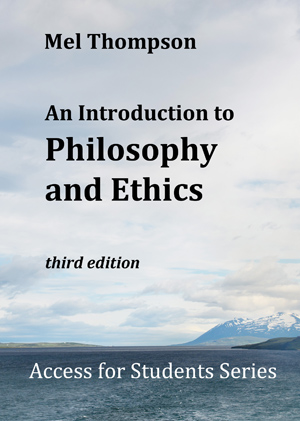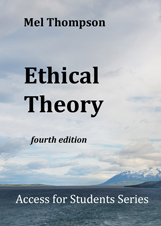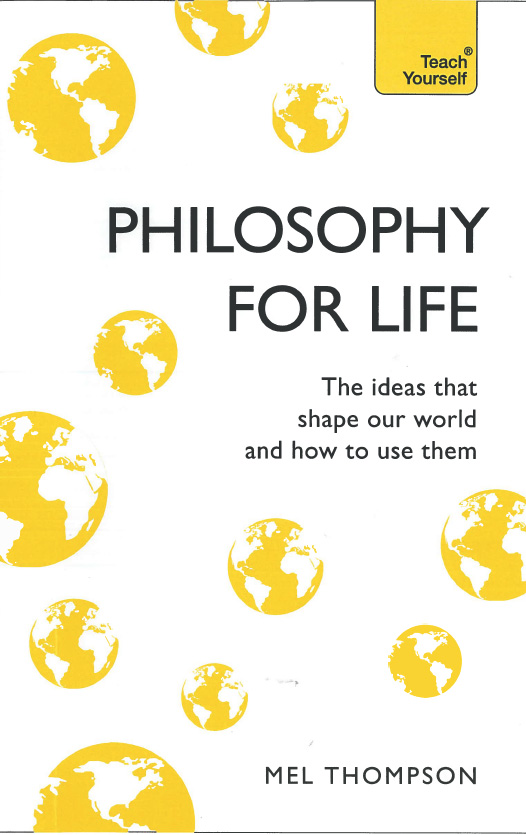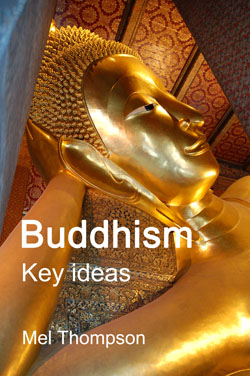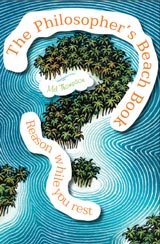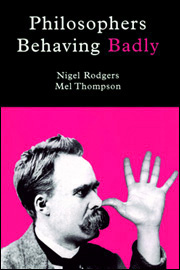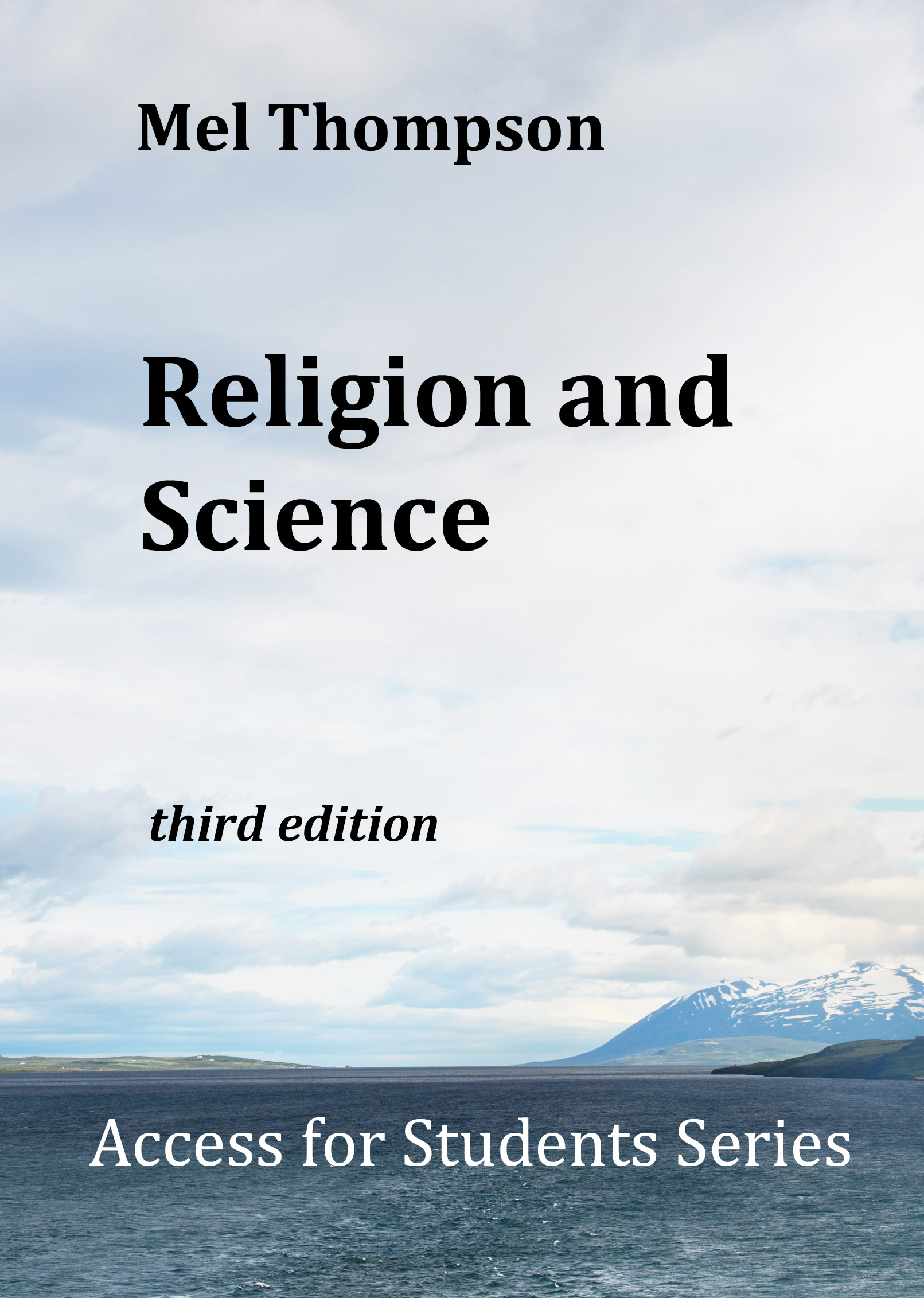Kant’s Ethical Theory
[These notes are taken partly from talks given to groups of A-level students and partly from my own publications. You are free to use them for your own work, and to share them freely with other students, but they may not be used for any commercial purpose. Copyright remains with the author.]
Contents
Introduction
Good will, duty and ‘ought’
Postulates and the highest good
The Categorical Imperative
Issues and problems
Positive features
Introduction
Immanuel Kant (1724-1804) is one of the most influential figures in the development of Western philosophy. His entire life was spent in Königsberg in East Prussia, where he was a professor at the university. This in itself was remarkable since, prior to the twentieth century, most philosophers were not professional academics.
In many ways, Kant’s philosophy can be seen as an attempt to take seriously the claims of the Empiricists (e.g. Hume) that everything depends upon experience and is open to doubt, judged by the amount and quality of the evidence available, but to do so in the context of Newtonian physics and the rise of science, which seemed to require a degree of certainty about matters such as causality. How can we be certain of anything at all if everything we know comes from fallible human experience? So, for example, science seeks to formulate laws which predict what will happen, and causality is an essential feature of Newtonian science. We just know that everything will be found to have a cause, even before we experience it. But how can you know for certain that everything has a cause, if all you have to go on are individual things and causes that you have experienced?
Kant sought to answer this through what is generally called his ‘Copernican Revolution.’ Just as Copernicus totally changed our perception of the world by showing that the Earth revolved round the Sun and not vice versa, so Kant argued that the world of our experience is shaped by our own means of perceiving and understanding it, making the important distinction between what we perceive with our senses (which he called phenomena) and the world of things as they are in themselves (which he called noumena).
Kant argued that certain features of experience, including space, time and causality, were not in themselves features of the external world, but were imposed by the mind on experience. This was a revolutionary way of looking at the theory of knowledge and at metaphysics. Take the example of time. When I see a sequence of things, I say that time is passing and that one thing follows another. But where is that time? Is it something that exists ‘out there’ to be seen? Is time there to be discovered? Kant argued that time was one of the ways in which the mind organizes its experiences; it is part of our mental apparatus.
We cannot know the world as it is in itself, only the world as it appears to us. That is absolutely central to an understanding of Kant, and he stands at the head of a long tradition in philosophy, in which our minds are the key to understanding the world. But, for Kant, this is not just a matter of epistemology (the theory of knowledge) nor of speculative reason, but is also practical. He applies the same revolution to our thinking about ethics.
Kant's moral theory is based on the principles of the pure practical reason, not on what is ‘out there’ or on results, but on what is very much ‘in here’ in the awareness of a moral ‘ought’; on the experience we have of making a moral choice. In other words, you should strive to know the moral principles upon which you act, for only then will you know that you are acting with integrity.
Good will, duty and ‘ought’
In the Preface to his Groundwork for the Metaphysics of Morals, Kant’s sets out his aim as: ‘To seek out and establish the supreme principle of morality,’ and he starts with the ‘good will’ - knowing what it is to act morally.
“There is no possibility of thinking of anything at all in the world, or even out of it, which can be regarded as good without qualification, except a good will… The sight of a being who is not graced by any touch of a pure and good will but who yet enjoys an uninterrupted prosperity can never delight a rational and impartial spectator. Thus a good will seems to constitute the indispensable condition of being even worthy of happiness.”
(from the opening of Kant’s Groundwork…)
Kant demands moral seriousness; mixed motives will not do. You are not acting morally if you do what you enjoy, or that which gives you benefit. The moral act must be based on the pure practical reason, following its principles. In other words, to be moral, your pure will seeks to do what is your duty, no matter what your inclinations or the consequences involved. To benefit from or enjoy what you do is not immoral, it is simply morally irrelevant, morality does not depend on results or inclinations, only following the requirements of duty, in acting with good will.
Morality is a positive act by which we shape our world. Being kind or helpful may be a natural gift, something one does quite spontaneously, but that is not morality, because to act morally, according to Kant, is to act with a ‘good will’ which is not a natural gift, but something that we consciously choose.
Main aim of his morality: not to be happy, but to be worthy of being happy. Everything depends on the ‘ought’ of absolute moral obligation. Some would argue that Kant’s view of morality was influenced by his upbringing. His parents followed the pietist tradition of Protestantism, a tradition which emphasised personal seriousness and commitment.
An issue: Kant’s morality is tough on those who are naturally good. For actions to have moral significance, Kant requires that they originate in a conscious sense of duty. But is that realistic, and are our motives ever completely pure? And is it not rather sad to be good out of duty rather than pleasure?
Postulates and the highest good
In his Critique of Pure Reason Kant argues for three postulates: God, Freedom and Immortality. A postulate is something implied by what you do; you do not have to assent to it consciously before you act upon it.
So Kant is not saying that you need to believe in the existence of God, or freedom or your own immortality in order to act morally – because that would make morality almost impossible, not least because he held that the traditional arguments could not prove the existence of God. Equally, you cannot wait until you are certain that you are genuinely free to act before you do anything, or you’d never move – rather, by taking the decision to act, and taking it in line with what you see as your duty, you presuppose that you are free.
Now, a study of the postulates is beyond what we need for an appreciation of his moral argument, but they do give a vital insight into his way of thinking. His starting point is the fact that we know what it means to feel moral obligation, that there are things that we ‘ought’ to do, quite apart from whether we shall benefit from them or enjoy them. If that is the case, what does it tell us about the way we understand the world? What do we in fact ‘postulate’ about the world if we act morally?
We need to keep this in mind as we look at Kant’s idea that virtue and happiness should combine in the highest good, the summum bonum.
Happiness, therefore, in exact proportion with the morality of rational beings who are made worthy of happiness by it, constitutes alone the supreme good of the world into which we must necessarily place ourselves according to the commands of pure but practical reason.
The Critique of Pure Reason ‘The Canon of Pure Reason II’ (A809-12)
BUT… Kant recognises that, in this world, such a sense that happiness should be deserved depends on a hope for a supreme original good – in other words, that the world is so ordered that we canb believe that the supreme good is possible as an ideal, even if we do not see it in practice. He therefore sees this as a practical reason to accept a supreme first Being – something that speculative reason could not deliver. This constitutes for Kant an argument for the existence of God – that God is something one needs to believe in to make sense of the world, a postulate of the practical reason.
It is a common mistake to treat Kant’s ‘highest good’ as something ‘out there’ an ideal which we need to believe in before we can act morally. And the impression is sometimes given that if virtue and happiness do not actually come together, then the ‘highest good’ is impossible and his moral theory fails. But it’s not like that. Kant’s theory does not require that you first decide on what the highest good is, and then seek to achieve it. Rather, the highest good is what you decide by your own resoning – you don’t find it ‘out these’ you construct it from within here. Kant also argues that if you do in fact seek the hightest good, it implies a belief that it is possible to achieve. But, these are postulates of the pure practical reason – they are the way you see things when you act morally, whether you consciously agree with them or not.
Before we move on to look at the Categorical Imperative, make sure you appreciate the significance of the postulates, and of Kant’s ‘copernican revolution’…
Here’s a caricature: The utilitarian (e.g. Bentham) rolls up his or her sleeves and looks at what needs to be done – seeking to achieve the best possible result is what morality is all about. By contrast, Kant agonises inwardly over the sense of moral obligation, and tries to see what it implies and what principles underpin the sense of something being right or wrong. His moral theory, although expressed in rational, logical terms, has its origins in a deep personal sense of obligation and duty.
So, just as the mind imposes space, time and causality upon everything it experiences; so the pure practical reason – by reflecting on the postulates that underpin the sense of moral obligation and duty – provides the principles that rationalise what morality is about.
The Categorical Imperative
A hypothetic imperative tells you what you need to do in order to achieve some desired result. (e.g. If you want to play well, you will need to practice.) By contrast a categorical imperative is absolute – it is something you ought to do it whatever the result.
This makes Kant’s ‘categorical imperative’ very straightforward and clear compared with other theories – there is no vague sense of what is to the benefit of all, nor are there arguments about the relative values of different societies or cultures. What Kant is after is an ‘ought’ that needs no qualification.
His ‘categorical imperative’ is set out in three fundamental principles of moral action:
1. So act that the maxim of your will could always hold at the same time as a principle establishing universal law
2 Act in such a way that you always treat humanity, whether in your own person on in the person of any other, never simply as a means, but always at the same time as an end.
3 Act as though a legislating member in the universal kingdom of ends
Kant’s approach is personal and absolute. For it to be valid, you need to know what it is to feel an absolute (categorical) moral imperative. If you are a psychopath, or if everything you think you ought to do has some other aim in view (in other words, a hypothetical imperative – you do it in order to achieve your chosen end) it will make no sense to you.
The first form implies that something is right only if you can be prepared to accept that everyone else should should be entitled to act on the same principle that you are using to decide what to do.
Note:
A maxim is a subjective principle of action. In other words, it is a kind of mental guideline in the form ‘Whenever X happens, I consider it right to do Y.’ The maxim is important, because that is what constitutes the ‘good will’, or the intention to do one’s duty. For Kant, it is the maxim that counts, not the actual or anticipated results – because it indicates that you acted from a good will.
To use Kant’s own example – the deceitful promise. If I decide to make a promise, with no intention of keeping it. That decision can only be moral if I can, at the same time, will that breaking promises should become a universal law. Yet to will that would be self-contradictory, for the whole meaning of what it is to make a promise would become nonsense. Hence, if promise making is to mean anything, it must be wrong to make promise with no intention of keeping it.
If you can universalise what you intend to do, then it is morally right; if you cannot, then it is wrong. Now that does not mean that it must be possible for everyone to do exactly what I choose to do at this moment in order for it to be right. Not everyone may want to, and it might not be practically possible. What Kant argues is that the moral principle that I use to justify my action should be the principle that everyone else can use, without making nonsense of the whole idea.
Of course, you can’t universalise a principle on the basis of the expected result. If you had to accept that everyone should be able to drive their car on this particular bit of road at 3pm on a Sunday afternoon in order for it to be right for me to do so, then it would only be right if you were also stuck in the mother of all traffic jams! All Kant’s principle implies is that the general principle that I should be free to drive on a road unless I cause some nuissance by doing so, should be applied to everyone else as well. It’s the principle (or maxim) that is to be universalised, not the action.
The second form of the Categorical Imperative follows from the first.
If you can will that what you do should become a universal principle of law, then you must will that everyone else should be free to make that same moral choice. In other words, you have to allow that all others are free moral agents, just as you are. But to treat others as free moral agents implies that they are to be respected as such and not simply used as a means to your own end.
A daft example:
There are times when, in a limited way, we all use other people as the means to our own end – that’s not a problem. Imaging getting in a taxi and then refusing to tell the driver where you want to go, because you are afraid of using him or her as a ‘means’! The driver wants to be your ‘means’ (in this limited way) – that’s how he or she makes a living! But you should not use them as ‘means’ without also allowing them the possibility also of being ‘ends’, in other words of being free moral agents. You should not enslave them and keep them driving until they drop – because they would be to take from them the very autonomy that you want for yourself. There are all too many situations where people are treated as ‘things’ rather than persons, when their own rights and needs are set aside in order to use them as disposable cogs within someone else’s wheel.
The third form – less well known that the first two, but equally important – is that you should always act as though you were responsible for legislating in a kingdom where everyone is to be treated as an ‘end’ and not as a means – in other words, a society of free and authonomous human individuals.
In other words, you have an obligation to act in a way that is compatible with your moral view of what society is about. It is thus not enough to be a moral and autonomous individual, retaining your own integrity. It is equally important that you should allow everyone else to be the same. That means following principles that are compatible with, and promote, a society where everyone is free and autonomous.
Issues and problems…
There is a potential problem that the first form of the categorical imperative may break down under the ‘What did the Romans ever do for us?’ principle. (Remember that argument? Okay, so they gave us the roads, the aqueducts, the central heating, the laws… but What did they every do for us?) So you can start with the general principle that everyone should be free to do X and then start to qualify it… well, everyone who is over the age of 18… well, everyone who is of sound mind … well, everyone who is female, and of sound mind, and over 18 and with red hair, and provided that there is an ‘r’ in the month, and provided it is a wet Sunday afternoon etc.
A principle appears to stand a better chance of being universalised the more it is qualified; in other words, the narrower its application. But if you go down that line of argument, you lose the benefit of having universal principles, so it becomes self-defeating.
You could also argue that Kant’s third formulation of the categorical imperative is fine for a society of free and autonomous individuals – but no such society exists! In practice, society is a mixture of people, some of whom will go against all moral principles in order to gain power, for example. If we were all committed to live in a moral society, then this is how it ethical principles should be set out, but that’s not the society in which we actually live.
So a key problem is how you use Kant’s argument in a society where some people choose to go against moral reason. Sometimes you have to go against what someone wants, for the good of society as a whole. However, under the first formulation of the categorical imperative – that one should act in such a way that the maxim of one’s actions could become a universal law – it is possible to justify, for example, restraining someone from doing harm to another. This is because it is perfectly reasonable to universalise the maxim ‘Whenever I see someone about to harm another, I will restrain him or her’ without contradiction.
But it leaves the general question about whether Kant’s moral principles take human nature suficiently into account? His morality might be reasonable, but most people are not.
Kantian ethics gives form but not content. You can act with integrity – convinced that you can want the principle upon which you are acting to become a universal law – but still be wrong. Equally, you can be convinced that everyone should be treated as an end, an autonomous moral legislator, but people may let you down, fail to think and behave reasonably – and on those occasions you may be tempted to set aside how they are as an end in themselves, but treat them (e.g. by locking them up) as a means to your end of getting a peaceful and safe society.
So there are difficulties in seeing exactly how to apply Kant’s clear moral principles to the rather less intellectual, more competitive and more selfish society in which we find ourselves.
Positive features…
Kant was a brilliant university lecturer and tireless intellectual who sought the fundamental principles of the pure practical reason; principles upon which all thinking people could agree as the basis for ethics.
His three forms of the ‘categorical imperative’ are of permanent value as a benchmark for clear ethical thinking. Kant gets us beyond the emotional impulse of the moment, the adolescent desire to shock or rebel, or the desperate attempt to set aside tradition in favour of self-discovery. He wants moral thinking to be exactly that – thinking!
All ethical theories have their limitations, and Kant’s Germanic long-windedness does not make for easy reading, nor does it offer instant answers for moral questions. In many ways his rational approach to the responsibility of doing one’s duty would seem an unlikely theory to find favour in a freedom-loving society where the instant reaction and the soundbite are preferred to serious intellectual argument. However, an awareness of Kant’s principles can open us up to serious ethical debate, and challenge us to look beyond the immediate situation in which we find ourselves, to scan the horizon of human thought.
© Mel Thompson, 2015



